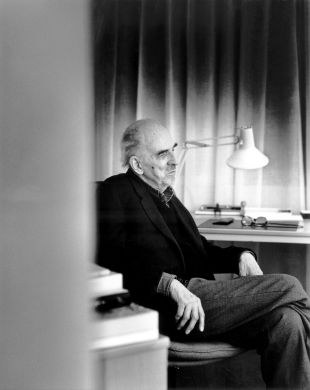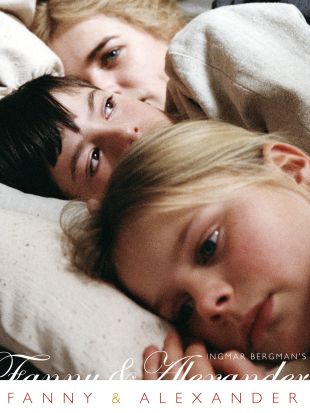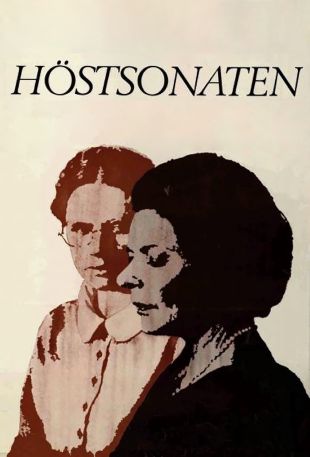Regarded by many as one of the three or four most brilliant directors of the 20th century, Ingmar Bergman radically altered the nature and meaning of the motion-picture form, transfiguring a medium long devoted to spectacle into an art capable of profoundly personal meditations into the myriad struggles facing the psyche and the soul. Born Ernst Ingmar Bergman on July 14, 1918, in Uppsala, Sweden, he followed a brief 1938 military stay by attending Stockholm University. While there, he staged his first plays, among them adaptations of Macbeth, August Strindberg's Lucky Peter's Journey and Master Olaf, and Maurice Maeterlinck's The Blue Bird. In 1939, Bergman accepted the job of production assistant at the Royal Theatre (the Stockholm Opera), leaving school the following year to focus on stage work. By early 1943, he had begun work at the script department of Svensk Filmindustri, with his original screenplay for Hets (Torment) filmed by leading director Alf Sjöberg the following year. While remaining active in the theater, Bergman also continued his work in the film industry, and in the summer of 1945 he began directing his debut feature, Kris (Crisis), an adaptation of a drama by Leck Fischer. His next four films -- 1946's Det Regnar på Vår Kärlek (It Rains on Our Love), 1947's Skepp till Indialand (A Ship Bound for India), and 1948's Musik i Mörker (Night Is My Future), and Hamnstad (Port of Call) -- were all adaptations as well, although Bergman continued crafting original screenplays. In a sense, Bergman's career began in earnest with 1949's Fängelse (The Devil's Wanton), his first true auteur work. In addition to directing his own original script, the feature also marked the introduction of a number of Bergman hallmarks including his patented emotional complexity, a fascination with the dynamics of marriage, and a willingness to experiment with the motion-picture form and structure. Törst (Three Strange Loves), based on a screenplay by Herbert Grevenius, followed in 1949, but within months Bergman was filming Till Glädje (To Joy), another original effort again exploring a disintegrating marriage. In 1950, Bergman began shooting Sommarlek (Summer Interlude), his breakthrough effort. Told extensively through flashback, the film hones in on a number of the themes which would continue to recur throughout his oeuvre, including the loss of artistic identity, the demise of love, and the slow decay of life, all explored with a newfound confidence and grace. The political thriller Sånt Händer Inte Här (This Can't Happen Here) soon followed. Upon returning to work in 1952, he filmed the relatively lightweight Kvinnors Väntan (Secrets of Women) before turning to 1953's Sommaren med Monika (Summer with Monika). With 1953's Gycklarnas Afton (Sawdust and Tinsel/The Naked Night), Bergman made his next significant leap. His first period piece, the film was his bleakest work to date, drawing from the breadth of his major influences (particularly 1930s French films and silent German cinema) to create a newly mature and distinctive visual sensibility. The sense of freedom so dominant throughout Gycklarnas Afton remained for 1954's farcical En Lektion i Kärlek (A Lesson in Love). After 1955's Kvinnodröm, Bergman created his next masterpiece, the intricate romantic comedy Sommarnattens Leende (Smiles of a Summer Night). Having hit his stride, Bergman began work on one of his most famed efforts, 1957's Det Sjunde Inseglet (The Seventh Seal). The film which brought him international renown, it marked a turning point away from the romantic explorations of his earlier work toward an examination of the relationships of man to God and death, a theme which remained at the center of his work for many years to come.
Bergman's obsession with death continued in 1957's brilliant Smultronstället (Wild Strawberries), starring Victor Sjöström as an aging professor reminiscing about the disappointments which tainted his life. After the somewhat slight Nära Livet (Brink of Life), Bergman helmed 1958's gothic comedy Ansiktet (The Magician), a stunning return to form. The medieval setting of The Seventh Seal reappeared in 1960's Jungfrukällan (The Virgin Spring), a controversial essay on rape which won an Academy Award for Best Foreign Language Film. It was followed later that same year by Djävulens Öga (The Devil's Eye). The outstanding Såsom i en Spegel (Through a Glass Darkly) was the next step in Bergman's evolution, marking the beginning of his "chamber" style of photography -- essentially, a penchant for extreme close-ups designed to highlight the nuances of his actors' faces to underscore a scene's psychological intensity. It also opened his so-called "religious trilogy," a series of films exploring crises of faith, which also included 1962's Nattvardsgästerna (Winter Light) and 1963's Tystnaden (The Silence). In the wake of 1964's För Att Inte Tala om Alla Dessa Kvinnor (All These Women), Bergman planned to mount a theatrical production of The Magic Flute, but instead fell prey to a viral infection which kept him out of action during the early months of 1965. He returned to the screen in late 1966 with Persona, an intense meditation on identity that remains his crowning masterpiece. Another trilogy of films, all of them set on the tiny island of Fårö -- 1968's Vargtimmen (Hour of the Wolf) and Skammen (Shame), rounded out by Bergman's first color film, 1969's En Passion (The Passion of Anna) -- concluded the decade. In 1970, Bergman directed his first English-language film, The Touch. The masterful Viskningar och Rop (Cries and Whispers) followed in 1972, with the acclaimed television miniseries Scenes from a Marriage premiering in 1973. The small screen remained Bergman's medium of choice for the next several years, with The Magic Flute in 1975 and Ansikte mot Ansikte (Face to Face) in 1976. That same year, he was arrested for alleged tax evasion, later leaving Sweden as a voluntary exile. Relocating to Munich, he began work on 1977's The Serpent's Egg, his first feature film in half a decade.
After completing 1978's Autumn Sonata, Bergman entered the 1980s with Aus dem Leben der Marionetten (From the Life of the Marionettes). Two years later, he released the Oscar-winning Fanny och Alexander (Fanny & Alexander). He then turned strictly to television, premiering Efter Repetitionen (After the Rehearsal) in 1984, followed a year later by The Blessed Ones. He also maintained his busy theatrical schedule and in 1987 published an autobiography, Laterna Magica (The Magic Lantern). In 1992, his script Den Goda Viljan (The Best Intentions) was filmed for television by Bille August; three years later, he announced his withdrawal from the stage, but by 1996 he was shooting the television drama Larmar och Gör Sig Till (In the Presence of a Clown).
After years of inactivity following that project, Bergman -- in late 2002 -- broke his vow of cinematic retirement on one final occasion: a two-hour made-for-television sequel to the director's 1973 masterpiece Scenes from a Marriage. Shot in the fall of 2002 and released in 2003 to universal acclaim, Saraband followed Marianne (Liv Ullmann) and Johan's (Erland Josephson) reunion after a lengthy estrangement, and examined the extent to which parents can psychologically scar their children and one another.
On July 30, 2007, he died on his island of Fårö at age 89. He left behind a body of work in the cinematic and literary realms to far outstrip that of almost anyone -- work whose reputation would live centuries beyond its creator.


